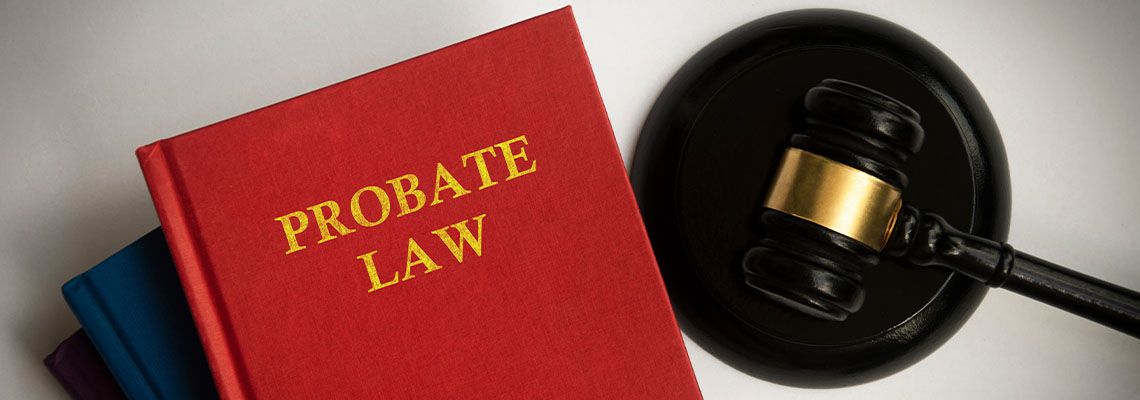
How Long Do You Have to File Probate After Death?
Losing a loved one is an overwhelmingly difficult time, and the added pressure of dealing with legal matters can make this period even more challenging. You may be navigating through a sea of emotions, and the last thing you want to worry about is the complex world of probate law. That's why we're here to help.
We are Bochnewich Law Offices, based in Southern California, serving clients throughout Riverside County, Los Angeles County, San Bernardino County, Orange County, and San Diego County. Our team of dedicated attorneys has decades of experience in guiding families through the probate process, taking the burden off your shoulders during this distressing time.
The Timeframe for Filing Probate
In California, there isn't a strict deadline for filing probate after death, but it's generally best to start the process as soon as possible. Delays can potentially lead to complications, such as disputes over the will or the estate. Remember, probate cases can often take up to 18 months, so starting early can help to ensure a smoother process.
The Importance of Prompt Action
Dealing with legal matters after the death of a loved one is a difficult task. However, prompt action in filing for probate is crucial for several reasons:
Protecting Estate Assets: When we start the probate process promptly, it allows us to protect the assets within the estate. This includes real estate, bank accounts, investments, and other valuable property that may be susceptible to damage, theft, or depreciation.
Preventing Unauthorized Claims: A delay in filing for probate could potentially open the door for unauthorized claims on the estate. By initiating the process quickly, we can help safeguard against such issues.
Ensuring Timely Distribution: Beneficiaries often depend on their expected inheritance for financial stability. Delaying probate can mean delaying access to these much-needed funds. We work diligently to ensure that distributions are made as swiftly as possible.
Avoiding Legal Complications: Probate laws can be intricate and multilayered. By taking prompt action, we can navigate these laws more efficiently and avoid potential complications down the line.
Mitigating Disputes: In some cases, delays can lead to disputes among potential heirs. Such disagreements can prolong the process further and create unnecessary tension within the family. Acting promptly can help minimize the likelihood of such conflicts.
An attorney can assist you and aim for a smooth and fast probate process.
The Probate Process in California
The probate process in California is a structured and methodical procedure. It's designed to ensure the deceased's assets are distributed according to their wishes and any debts are paid off.
Here's a breakdown of the typical probate process in California:
Filing a Petition: The process begins when we file a petition with the probate court. If your loved one left a will, the executor named in the will usually does this. If there's no will, a close relative typically files the petition.
Court Appointment: After filing the petition, the court appoints an administrator, also known as a personal representative. This person is responsible for managing the deceased's estate throughout the probate process.
Will Verification: If your loved one left a will, the court verifies it. This step ensures that the will is valid and meets all legal requirements.
Identifying Heirs: The court identifies the heirs or beneficiaries. These are the people who will receive assets from the deceased's estate.
Estate Valuation: The court determines the value of the deceased's estate. This includes all assets like real estate, bank accounts, investments, and personal property.
Debt Payment: Before distributing assets to the heirs, the administrator pays off any debts the deceased owed. This can include loans, credit card debt, and unpaid taxes.
Asset Distribution: After paying off the debts, the remaining assets are distributed to the heirs according to the will. If there isn't a will, the assets are distributed according to California's intestacy laws.
This process can be complex and time-consuming, often taking up to 18 months to complete. But don't worry; our team at Bochnewich Law Offices is here to guide you.
The Cost of Probate
Probate can be an expensive process with court fees and legal representation costs. These expenses can sometimes add up to around 8% of the total estate value. This financial burden can be daunting, but our firm is committed to providing you with support to manage these costs effectively.
The Public Nature of Probate
Probate, by its very design, is a public process. This means all information disclosed in the probate court isn't private. It can be tough when details about your loved ones, their assets, and who receives what are made public knowledge. This lack of privacy can add stress to an already difficult time, especially if there are disagreements among family members.
Compassionate Legal Guidance
The probate process after the death of a loved one can be emotionally and legally challenging. At Bochnewich Law Offices, we're dedicated to guiding you through each step of the process, providing the support you need during this difficult time. With decades of experience serving Southern California, our team of skilled attorneys is ready to assist you with filing probate promptly and efficiently. Reach out to us today, and let us help you through this complex journey.
